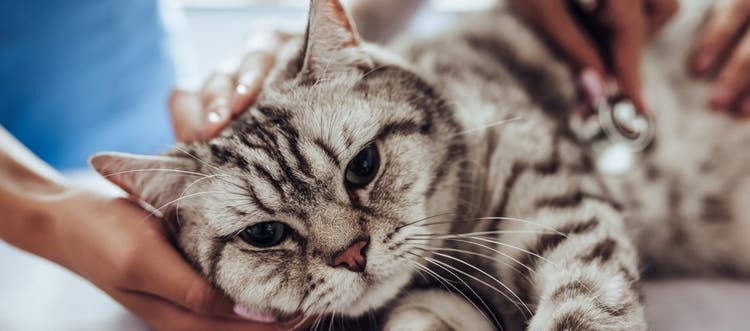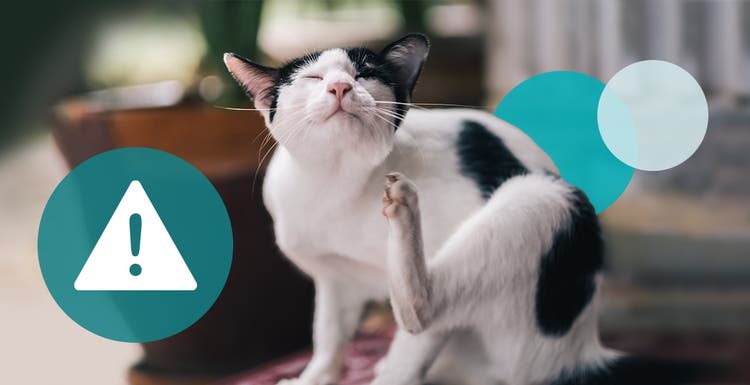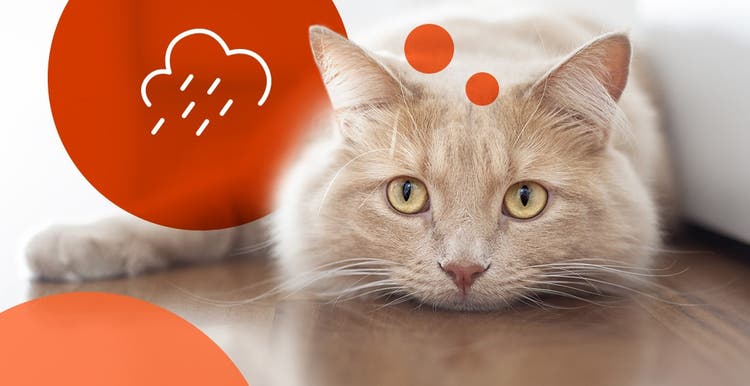The dangers heartworms pose to cats.
Cats and dogs both catch heartworm in the same way — through bites from heartworm-carrying mosquitoes — but heartworm affects cats in distinctly different, and often more dangerous, ways.
How Is Heartworm in Cats Different from Heartworm in Dogs?
Cats and dogs both catch heartworm through the bite of a worm-infected mosquito, and studies show cats are infected at a rate similar to dogs. However, heartworm disease in cats is drastically different from heartworm disease in dogs.
The first difference with heartworm in cats is in their size and quantity: Heartworms are typically smaller in cats than in dogs. And while heartworm‐positive dogs can be infected with multiple worms at once, cats are typically only infected with one or two worms.
While heartworms can live, grow and thrive in a dog for up to seven years, they usually only live for two to four years in a cat. Cats are an atypical host for heartworms, and worms in cats often don’t live to reach their adult stage. This is because heartworms trigger an intense immune reaction in cats that does not take place in dogs. While helpful in attacking the immature worms, this reactive immune response is typically very hard on the cat and can cause serious symptoms. In worms that do reach adulthood, when they eventually die, they can cause blood clots or inflammation in the infected cat’s lungs, which can prove dangerous or fatal for the cat.
The symptoms of heartworm infection can also differ between cats and dogs:
How Can You Prevent Heartworm in Cats?
Unfortunately, there is currently no approved treatment for heartworm in cats. A veterinarian can test your cat for heartworms, but even with testing, the disease can be difficult to diagnose. These tests might also be expensive and hard on your cat.
Here’s the bottom line: Where there are mosquitoes, there can be heartworm disease. You can’t ensure a mosquito‐free environment any time of year, especially in warm, humid areas of the country. This is why preventing heartworms with veterinarian-prescribed medication is essential for protecting your cat from this deadly parasite.
Ask your veterinarian about a heartworm preventative prescription for your cat.

Advantage Multi® for Cats (imidacloprid + moxidectin)
A monthly topical that prevents heartworm disease and treats fleas, roundworms, hookworms and ear mites. Available with a veterinarian's prescription.
Related Articles
Advantage Multi® for Cats (imidacloprid + moxidectin)
Indications:
Advantage Multi® for Cats is a once-a-month topical solution for the prevention of heartworm disease, killing adult fleas, the treatment of flea infestations, the treatment and control of ear mite infestations and hookworm, and roundworm infections in cats and kittens 9 weeks of age and older.
Important Safety Information:
CAUTION: Federal law restricts Advantage Multi® for cats to use by or on the order of a licensed veterinarian. WARNINGS: Do not use on sick or debilitated cats or ferrets. Do not use on underweight cats (see ADVERSE REACTIONS). Do not use on cats less than 9 weeks of age or less than 2 lbs. body weight. Do not use on ferrets less than 2 lbs. body weight. PRECAUTIONS: Avoid oral ingestion. HUMAN WARNINGS: Children should not come in contact with the application site for 30 minutes after application.




